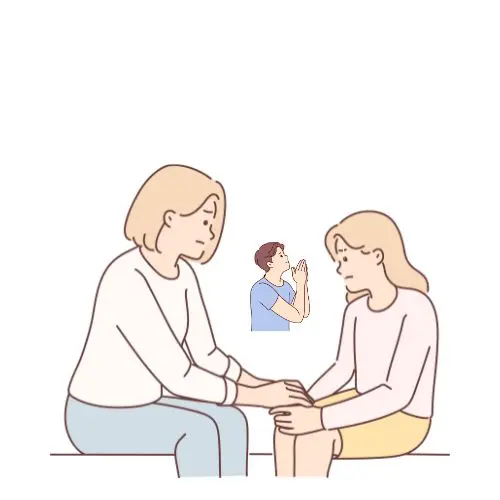Introduction
Trust is the foundation of any strong, healthy relationship. Partners in trusting relationships feel comfortable opening up to one another and relying on each other for support. They feel secure and connected. Rebuilding broken trust requires restoring that sense of comfort, dependability, and confidence in your partner after it has been damaged.
Key Facts and Tips
- It takes time and effort to rebuild broken trust. Be patient and commit to the process.
- Identify the causes of mistrust – lack of honesty, intimacy, or respect. Address the specifics.
- Let go of judgments about yourself and your partner. Focus on understanding.
- Speak openly and listen without getting defensive. Provide reassurance.
- Respect boundaries and needs for personal space as you reconnect.
- Seek counselling if you feel overwhelmed or unable to make progress.
Why Trust Breaks Down in Relationships

There are many potential causes of broken trust in an intimate relationship. Common causes include:
- Lack of honesty and truthfulness
- Infidelity or cheating
- Inappropriate emotional or physical intimacy with another person
- Repeated unreliable behaviour or broken promises
- Financial secrets or irresponsible decisions
- Controlling, disrespectful, or abusive behaviour
- Substance abuse
- Poor communication and unwillingness to listen
The specific incidents involved will differ in every relationship. It helps to reflect on what behaviours or patterns led to the erosion of trust in your particular situation.
How to Start Rebuilding Trust

Repairing broken trust requires openness, accountability, and commitment from both parties. Here are some effective ways to start the trust-building process:
- Have an honest talk about what happened.
- Discuss the behaviours or situations that caused trust to break down. Understanding the specifics is essential for progress. Get professional help from a therapist or counsellor if needed.
- Take responsibility and apologize.
- Each person should accept responsibility for their role without blaming their partner. Make specific apologies and express regret over hurting your partner.
- Identify areas for change and growth.
- What behaviours or patterns need to end? What do you each need to do differently going forward? Risk being vulnerable and declare your commitment to change.
- Give your partner time and space.
- Don’t pressure your partner to forgive you or instantly restore the relationship. Rebuilding trust requires patience. Respect their needs for personal space.
- Consistently demonstrate trustworthy behaviour.
- Through actions over time, show you are reliable, honest, and caring. Follow through consistently on the positive changes and commitments you have made.
How to Deepen the Trust as You Reconnect

Once broken trust begins to mend, you can continue to strengthen the foundation between you in many ways.
Spend quality time together.
Make your partner and your relationship high priorities again. Spend meaningful, undistracted time together doing activities you both enjoy. You rebuild the comfort and ease you once shared through regular friendly interactions.
Communicate openly and honestly.
Keep talking about difficult subjects related to the broken trust. Also, discuss the positive, easy topics again. Reestablish comfortable communication patterns where you listen well, understand each other’s perspectives, and provide emotional support.
Show accountability and reassurance.
When you make a mistake that impacts your partner, admit it quickly and sincerely. Demonstrate you can take ownership of your actions and won’t hide things again. Offer reassurance that you are committed to regaining their confidence.
Respect personal space and boundaries.
While intimacy is important, also respect each other’s occasional need for personal time and space as you work on the relationship. Pushing unity before both people are ready can undermine progress. Let things happen gradually.
How Counseling Can Help Rebuild Trust
Seeking guidance from a professional counsellor or relationship therapist can also be very helpful if you feel overwhelmed or unable to progress independently. Counselling provides many benefits for rebuilding broken trust, including:
- Constructive communication guidance you can practice at home
- New understanding of your conflicts and repairing patterns
- Coping strategies if old resentments resurface
- An impartial mediator to bridge gaps in your perspectives
- Accountability for growth and change between sessions
The Role of Forgiveness in Rebuilding Trust

A critical part of restoring broken trust is to forgive your partner sincerely after taking responsibility and making amends. Forgiveness does not mean instantly forgetting or excusing harmful behaviours. It means you consciously decide to let go of anger and resentment toward your partner.
Forgiveness is a personal choice and takes time. It often happens gradually as you heal and see positive changes from your partner. As you forgive, try to replace feelings of hurt and betrayal with more understanding and hope. Focus on their efforts and your shared desire to have a better relationship.
Practicing forgiveness brings peace of mind and emotional relief. Your partner also feels less pressure to “earn” your forgiveness and is more motivated by sincere caring and commitment to the relationship. Forgiveness facilitates reconnecting healthily.
Signs Trust is Being Rebuilt Successfully
It takes consistent effort and care from both people to truly regain lost trust. How can you tell real progress is happening? Signs trust is being restored include:
- Less obsessive thinking or anxiety about the situation
- Willingness to share thoughts, feelings, and information openly
- Comfort being intimate emotionally and physically
- Ability to argue respectfully and resolve conflicts well
- Reliably turning to each other for emotional support
- Voicing appreciation and affection for each other
The depth of intimacy and stability in your renewed relationship may differ from before the trust was broken. But in some ways, bonds formed by weathering a crisis together can become even stronger. I appreciate your progress and know that genuine trust can flourish again.
When All Attempts to Rebuild Trust Fail

Despite your best efforts, there is no guarantee trust can be fully restored. Your partner may be unable or unwilling to take accountability or make real change. Past betrayals can also leave deep emotional wounds that no amount of effort will undo.
You must judge when persisting could compromise your dignity and well-being without reasonable hope for improvement. Ending a relationship with broken trust is an extremely tough decision. The investment, attachment, and shared history make separation intensely painful. However, sometimes starting fresh alone or with someone new is the healthiest choice.
If all efforts to rebuild trust ultimately fail:
- Access your support system and self-care habits as you grieve and heal from the loss.
- Reflect on any new relationship skills or insights to apply going forward.
- Know you tried your best in good faith; some things cannot be repaired. Not all relationships are destined for a lifelong commitment.
With courage and resilience, the end of one relationship prepares you for learning and renewed hope with someone new. Each person and experience has value in shaping your capacity to trust and be trusted as you grow.
Conclusion
Trust is essential to creating a supportive, resilient bond between two people. While broken trust is painful, understanding its causes and being willing to make changes provides the opportunity for deeper intimacy. With sincere effort from both people, patience, and professional help when needed, most damaged relationships can be restored.
The process relies on open and honest communication, accountability without blame, and consistently demonstrating reliable, considerate behaviours over time. As trust rebuilds, nurturing acceptance, forgiveness, and mutual fulfilment cements the renewed foundation.
Rebuilding broken trust makes relationships stronger through overcoming adversity together. Both people are reassured that the relationship can weather life’s inevitable challenges. They emerge with greater wisdom about themselves and each other and prioritize their bond as a team.
While not all fractured relationships can or should be saved, make the attempts carefully. Knowing you sincerely tried and ended things gracefully should trust remain beyond repair. New insights equip you to seek relationships where you can engage authentically, and mutually thriving trust continues to grow.


all thanks to dr.ebedia the great spiritual spell caster for his amazing powerful love spell that bring back my beautiful lovely wife back to me safe and sound.and my relationship have be in a beautiful shape.i am now in control she do everything I tell her to do no questions.all thanks to dr.ebedia.
love spell that works instantly without any side effects or repercussions.
Get in touch with.dr.ebedia today if you have any issues in your relationship
he is trusted and reliable he never disappoint.
Ex back
Love spell
promotion
job opportunity
lottery spell
and alot more
drebedia @ gmail .com